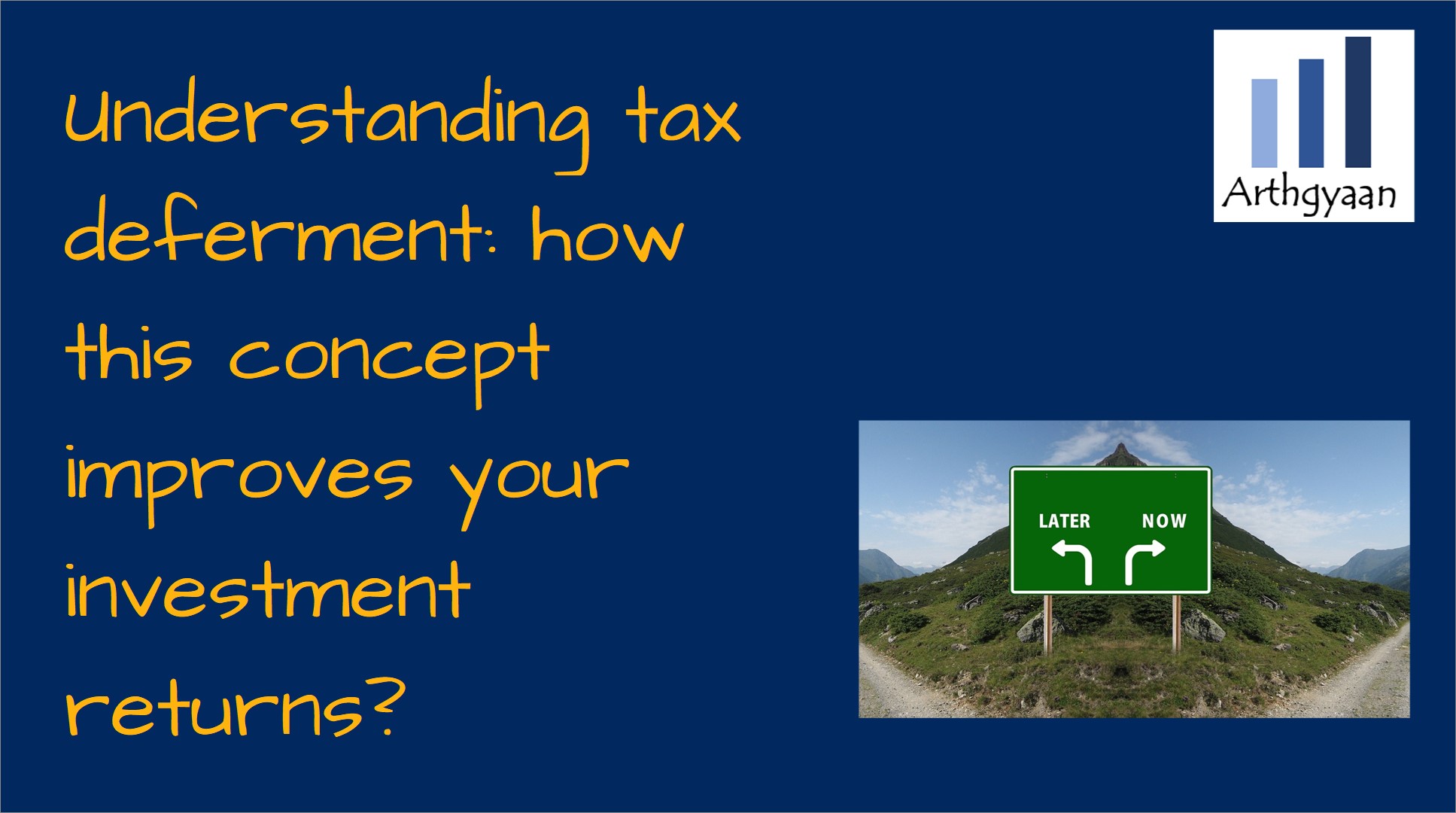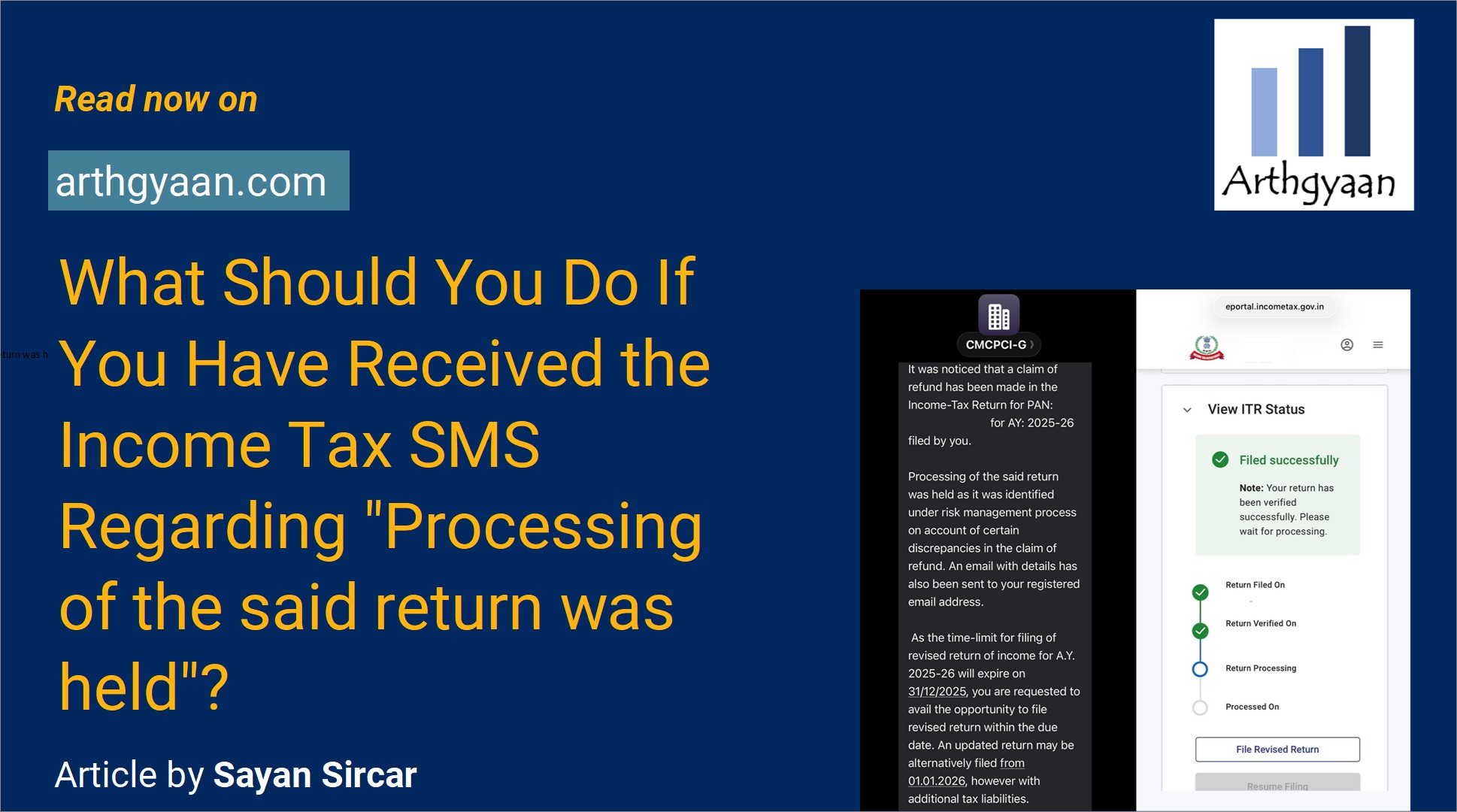Understanding tax deferment: how this concept improves your investment returns?
This article explains the concept of tax deferment and how it helps you convert income into capital gains that improve returns.
This article explains the concept of tax deferment and how it helps you convert income into capital gains that improve returns.

🤖 Explainer: What is tax deferment?
Tax deferment allows you to pay tax on a date in the future, typically at a convenient time, for money coming to you from an asset.
An example of tax deferment is the capital gains tax you pay, as a resident Indian investor, on selling units of a mutual fund in India. Tax is due from the profits of the sale, as capital gains tax, only when you sell the units.
The above concept should be contrasted with the tax on unrealised gains, as paid by US-based NRIs on their holdings of Indian mutual funds, as explained here: Should US-based NRIs sell off their mutual funds and stocks in India?.
The table above shows that income-generating assets like FD, savings bank accounts, coupons from bonds and rent from properties all share two common characteristics:
Both of these points reduce returns when:
In the example below, we are investing the same amount of ₹10 lakhs in an investment that gives 7% investment a year, in cumulative mode, for an investor in the 30% slab.
The investments are an FD where tax is due on an accrual basis. A debt mutual fund, maybe in the liquid fund or target maturity categories, is expected to give returns similar to FDs.
In an FD, you are expected to pay tax every year on the amount of interest received that year. This is called the accrual method of tax calculation. In a mutual fund, tax is paid at the time of sale, and there is no tax to be paid in the middle.
| Item | FD with tax on accrual | MF with deffered tax |
|---|---|---|
| Initial investment | -10,00,000 | -10,00,000 |
| Year 1 tax outflow | -21,000 | 0 |
| Year 2 tax outflow | -22,470 | 0 |
| Year 3 tax outflow | -24,043 | 0 |
| Year 4 tax outflow | -25,726 | 0 |
| Maturity / Sale date | 13,75,025 | 12,81,786 |
| IRR | 4.90% | 5.09% |
As the IRR numbers show, tax deferment improves returns. In the example above, even though the final amount is lower in the case of the mutual fund, the fact that there are no intermediate cash outflows due to tax improves the absolute return value.
🤖 Explainer: What is time value of money?
The intermediate tax paid in the case of the FD interest has the opportunity to compound inside the mutual fund, which leads to higher returns.
In a future article, we will explain how the concept of tax deferment can be applied to retirement so that the retirement corpus lasts longer.

Published: 23 December 2025
6 MIN READ

Published: 18 December 2025
8 MIN READ
1. Email me with any questions.
2. Use our goal-based investing template to prepare a financial plan for yourself.Don't forget to share this article on WhatsApp or Twitter or post this to Facebook.
Discuss this post with us via Facebook or get regular bite-sized updates on Twitter.
More posts...Disclaimer: Content on this site is for educational purpose only and is not financial advice. Nothing on this site should be construed as an offer or recommendation to buy/sell any financial product or service. Please consult a registered investment advisor before making any investments.
This post titled Understanding tax deferment: how this concept improves your investment returns? first appeared on 24 May 2023 at https://arthgyaan.com
Copyright © 2021-2025 Arthgyaan.com. All rights reserved.